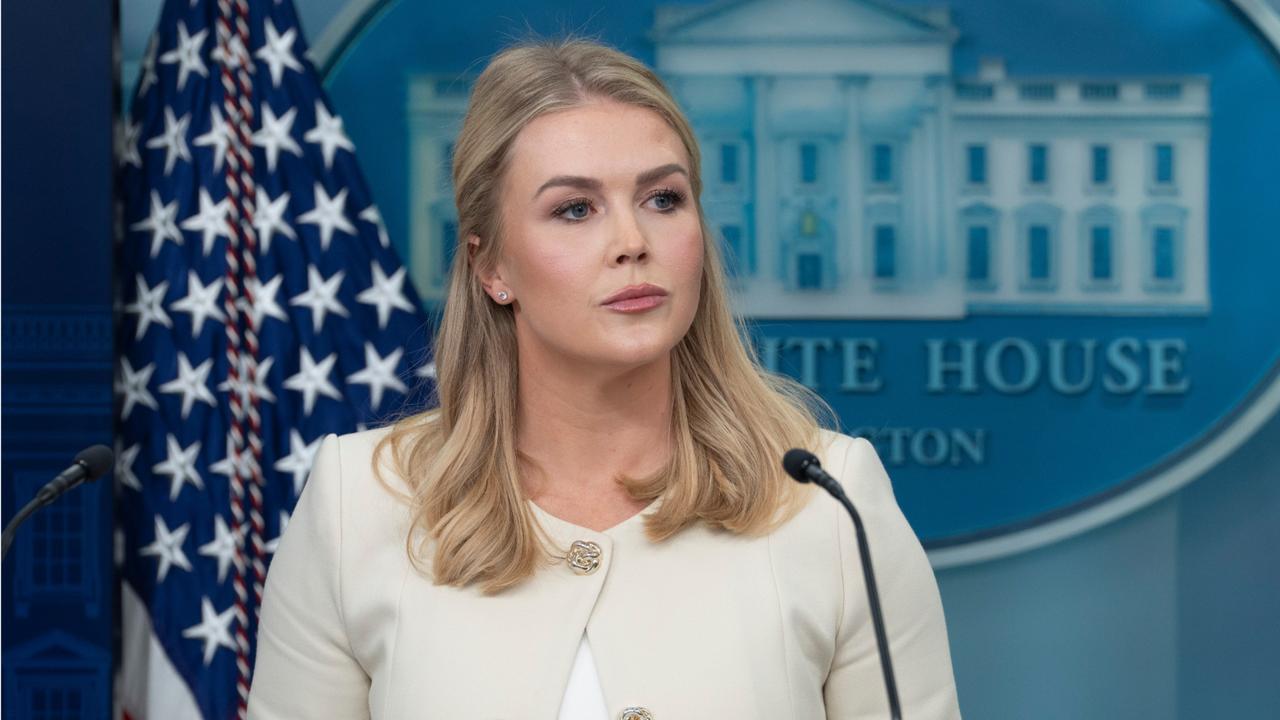In the quiet moments after a national tragedy, a familiar sound echoes across the country. It’s the sound of collective grief, of communities coming together to mourn, and of leaders offering their condolences. Yet, in the wake of the horrific school shooting in Minneapolis, the somber silence was quickly broken by a different kind of sound: a searing, public war of words that turned a moment of shared sorrow into a bitter political and cultural flashpoint. At the center of this firestorm were two prominent women, both of whom have held one of the most visible positions in American government: former White House Press Secretary Jen Psaki and her successor, Karoline Leavitt.
Psaki, now an influential voice in the media, was among the first to react to the tragedy. Her post on social media was a raw and emotional response, but it was also a direct challenge to a long-held tradition. She declared that “prayer is not freaking enough. Prayers does not end school shootings. prayers do not make parents feel safe sending their kids to school. Prayer does not bring these kids back. Enough with the thoughts and prayers.” These words, while resonating with many who feel that legislative action is the only meaningful response, also struck a nerve with millions of Americans who find solace, strength, and comfort in their faith. For them, “thoughts and prayers” is not a hollow phrase; it is a sincere act of spiritual empathy and a cornerstone of their belief system. Psaki’s words, intended to stir action, instead became a political lightning rod, drawing a clear line in the sand between those who prioritize political solutions and those who find strength in spiritual ones.
The counter-punch came swiftly and decisively from the current White House Press Secretary, Karoline Leavitt. During a press briefing, a reporter brought up Psaki’s comments, and Leavitt’s response was a masterclass in political communication and a passionate defense of faith. With a tone that was both firm and personal, she said, “I saw the comments of my predecessor, Ms. Psaki, and frankly, I think they are incredibly insensitive and disrespectful to the tens of millions of Americans of faith across this country who believe in the power of prayer, who believe that prayer works and who believe that in a time of mourning like this—when beautiful young children were killed while praying in a church.” Leavitt’s words were a direct and unyielding rebuke, but they were also a powerful act of empathy for a group that often feels marginalized in the national discourse. She wasn’t just defending a political party; she was defending a core belief. Her emphasis on the fact that the shooting happened in a church, a place of prayer, added a profound and deeply painful layer to her argument, turning the entire exchange from a simple political debate into a powerful defense of faith in the face of unspeakable evil.
This wasn’t the first time the “thoughts and prayers” debate has erupted in America, but it felt different this time. The public feud between these two press secretaries—one who served a Democratic administration and another who serves a Republican one—brought the conversation to the highest echelons of power. It forced Americans to confront a fundamental question: When tragedy strikes, where do we turn? Is the primary response a political one, rooted in the belief that human laws and legislative action can prevent future acts of violence? Or is it a spiritual one, grounded in the faith that a higher power can provide comfort and strength when all human institutions fail? For many, the answer is not an either/or proposition. They believe that faith can inspire action, that prayer can motivate people to work for change, and that a spiritual response does not preclude a political one. But in our hyper-polarized world, that nuance is often lost, replaced by two opposing camps, each armed with its own set of deeply held beliefs.
The debate also serves as a potent reminder of the shifting landscape of American politics. Psaki, as a former press secretary, knows the power of a single phrase to dominate a news cycle. Her words were a deliberate move, aimed at galvanizing her political base and drawing a clear contrast with the current administration. Leavitt’s response, meanwhile, was equally strategic, aimed at shoring up support among a crucial constituency and framing the opposition as being out of touch with the spiritual lives of everyday Americans. The fact that the shooter’s gender identity was also mentioned as a part of the investigation further complicates the issue, adding another layer of political and cultural division to an already fraught topic. What was once a simple expression of condolences has now become a litmus test, a way for Americans to signal their political and cultural allegiance in the wake of a tragedy.
The truth is, no one can truly measure the power of prayer or the effectiveness of a law. What we can see, however, is the very real pain and sorrow that these events inflict on communities and families. The debate between Psaki and Leavitt, while compelling to watch, pales in comparison to the grief of the parents who have lost their children. The real tragedy is not the war of words between two political figures, but the fact that a country as powerful and resourceful as America continues to grapple with these acts of violence. The debate will fade, the news cycle will move on, but the painful divide it exposed—between faith and secularism, between hope and despair, between prayer and action—will remain, waiting for the next tragedy to bring it back to the surface. It is a debate without a clear winner, a reflection of a nation still struggling to find common ground in a world that feels increasingly divided. The answer, if there is one, may not lie in a political talking point or a social media post, but in the quiet moments of shared humanity that exist long after the headlines have faded.






